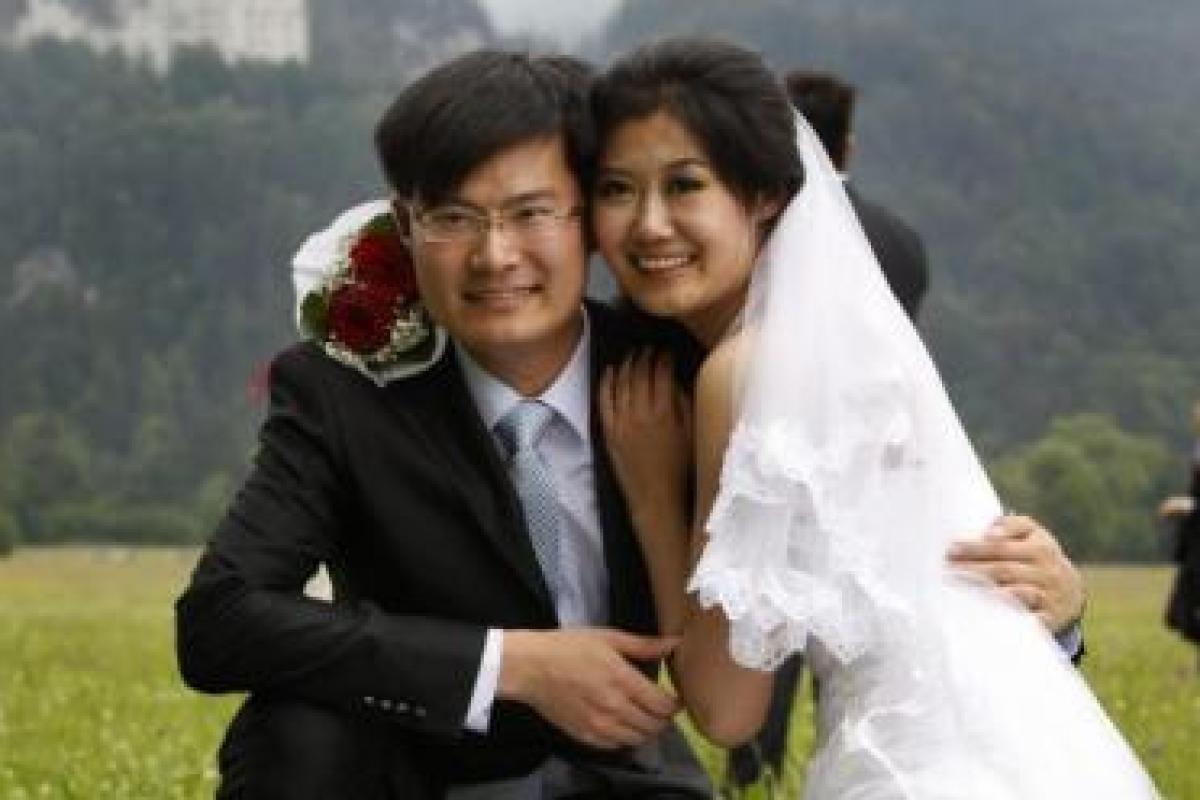Growing up in United States and now having lived in Asia for over 10 years I've seen a diverse range of cultural norms. Take the view on woman and marriage for example. Having married at the age of 34 years myself, of course I find the notion that a woman should be married by the time she’s in her late 20s ridiculous and the notion that these women are labelled by society as “leftover women”? Completely offensive!
However, this is not the norm everywhere. In fact, women face a lot of pressure all throughout Asia to get married quickly – the clock starts ticking immediately after uni! A common topic at Chinese New Year family gatherings is a) when you’re getting married (if you’re still single), or b) when you’re going to have children (if you’re married). I’ve seen many friends actually dread going to family functions because they know they’ll be pushed on either of these two issues. However, it’s a simple reality of life that women in Asia deal with on a daily basis.
Parents as matchmakers
Asia is certainly no stranger to arranged marriages – this has been the dominant method for marriages in India for years. Having personally seen quite a few arranged marriages, as well as seeing the ‘interviewing’ process, it’s quite interesting and I guess it’s all relative really. While it can work very well, it’s of course important that the bride and groom are equally agreeable.
Similarly in Shanghai, parents attend a ‘marriage market’ to meet and talk to other parents and ultimately find suitable mates for their child. Factors to consider are commonly height, weight, job/income, education, Chinese zodiac sign, and personality fit. Parents write this information on a piece of paper, which is then hung up as an advertisement for other parents to deliberate.

So, how did we get here?
The one child policy in China (and the resulting sex-selective abortions) has actually resulted in a disproportionate gender balance (i.e. there are more men than women). A study of married couples in China noted that men tend to marry down the socio-economic ladder. “There is an opinion that A-quality guys will find B-quality women, B-quality guys will find C-quality women, and C-quality men will find D-quality women," says Huang Yuanyuan. "The people left are A-quality women and D-quality men. So if you are a ‘leftover woman’, you are also A-quality."
P&G SK-II’s clever play on this – ‘power woman’
Earlier this year Japanese beauty giant SK-II recently launched a four-minute documentary style video called “Marriage Market Takeover.” In a statement to the BBC, SK-II President Markus Strobel said the advert was part of "a global campaign to inspire and empower women to shape their destiny."Have a look below!
x
Over 1 million views in just 3 days, the ad details the stories of different ‘leftover women’, and the pressure that they face from their parents. The beauty of the creative (after a very sad 2.5 minute start), was that the marriage market was re-vamped to show large pictures of the girls with personal messages beneath like “I don’t want to get married just for the sake of marriage. I won’t live happy that way” and “As opposed to ‘leftover woman’, I have a great career and there is another term ‘power woman’.” At the end of the story, the parents have an epiphany saying “I will always support you” and “My daughter is beautiful! ‘Leftover women’ should be proud!”
So how did people feel about this ad?
At BrainJuicer, we were naturally curious how this ad would be perceived... so, we tested the ad in China! The results were quite polarizing… While still quite a few women were left feeling happy after viewing the ad (and also had praise for SK-II for giving a voice for the pressures that women face), the key challenge was that there was a large proportion of women who were just left feeling sad (much higher than we typically see in China)! As such, the ad had a lukewarm performance – landing a 2-Star performance out of 5-Star (in the bottom 35% of our database). Not surprisingly, there was less happiness among unmarried women – replaced with a negative surprise that marriage markets even existed, and appalled that it’s essentially selling your child (“The matchmaking corner is like a trade fair, the child is the merchandise.”).
We also had a look at the predicted virality of the ad as well, and given the polarization, it was predicted to be quite viral (and indeed was). Subsequent metro station posters helped to reinforce a more positive message telling the personal success stories of these ‘leftover women’, and likely helped to counterbalance the initial feeling of sadness the ad evoked.
At BrainJuicer we’ve seen SADvertising work very effectively in Thailand – most notably with Thai Life Insurance. However, the key to using sadness effectively as an emotional strategy is that you leave people feeling happy at the end, and there is a resolution to the sadness. We’re actually so passionate about helping brands achieve 5-Star creatives that we regularly test hundreds of ads on our own, and publish the findings of these through our FeelMore50 website! If you share our passion, please check out more at http://feelmore.brainjuicer.com .
So, is the glass half empty or half full? I’m more of a ‘glass half full’ person, so I would encourage any woman feeling ‘leftover’ to just remember that if you are a ‘leftover woman’, you are also very likely ‘A-quality’!
This piece was by Maria Spinelli, Senior Vice President for BrainJuicer Asia.
